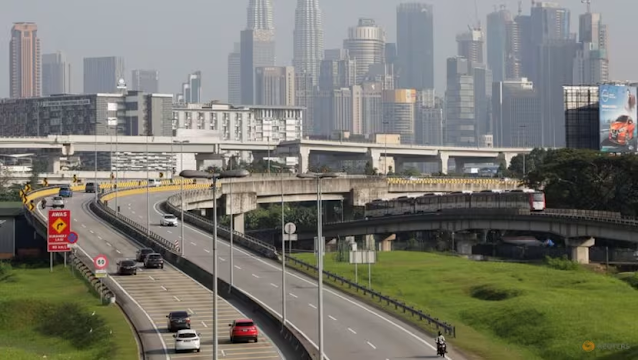Speaking in Parliament on Thursday (Nov 30) as he tabled a much-anticipated White Paper on the Progressive Wage Policy, Economy Minister Rafizi Ramli said the voluntary programme will target 1,000 companies for the pilot, with a focus on micro small and medium enterprises.
Only Malaysian employees who earn less than RM5,000 (US$1,076) monthly will be eligible for the programme, with workers from multinational and government-linked companies exempted from participating in the project, he added.
“The progressive wage policy model that will be introduced involves a progressive increase in wages, in line with the increase in employee productivity,” said Mr Rafizi.
“This policy will not only improve the skills of employees, but employers will also benefit through increased productivity, employee loyalty and competitiveness.”
Mr Rafizi noted that Malaysian employees faced issues of low wages, with 73.3 percent of a formal workforce of 6.54 million people earning less than RM5,000 a month.
He also said that according to official data, wages grew at an average of 4.1 per cent from 2011 to 2022.
“Low wages have had a serious impact on the lives of workers in this country, with a large portion of wages being used to cover basic expenses and not having the opportunity to make any savings,” he said.
Mr Rafizi said that companies participating in the programme would receive financial incentives from the government.
According to Mr Rafizi, participating companies will be eligible to receive cash incentives of up to RM200 monthly for 12 months for fresh graduates and entry level posts, while for non-entry-level posts, the incentive rate is proposed to be up to RM300 monthly for 12 months.
The granting of these incentives will be reviewed every year based on the government's fiscal position, he added.
The incentives will be paid after employers submit documents for their staff’s skills upgrading courses in training programmes identified and certified by the government.
Malaysian economics minister Rafizi Ramli speaking in parliament (Photo: Bernama) Malaysia’s progressive wage model takes inspiration from Singapore’s Progressive Wage Model implemented and identified in specified sectors, where a multi-year salary increment schedule is set out for workers in tandem with skills acquisition on their part.
However, the government’s moves on this front in recent months has sparked public discussions over whether a progressive wage model is feasible in Malaysia, and what it could mean for the country’s minimum wage policy that covers all sectors.
Malaysia currently has a minimum monthly wage of RM1,500 per month, which was implemented in May of last year. Under the National Wages Consultative Council Act 2011, the minimum wage must be reviewed every two years.
In parliament, Mr Rafizi said that the government decided on a pilot programme first to fine-tune it, before expanding it to all employers in the future.
“An impact assessment will be made on the effectiveness of the pilot project and its viability before it is fully implemented,” he said.
The incentives will be given to companies that meet the conditions and criteria for a period of one year to enable the company to adjust its business plan.
He said that a survey of 2,038 workers found that 60 per cent of them supported the implementation of the policy.



No comments:
Post a Comment
rightwaystosuccess@gmail.com